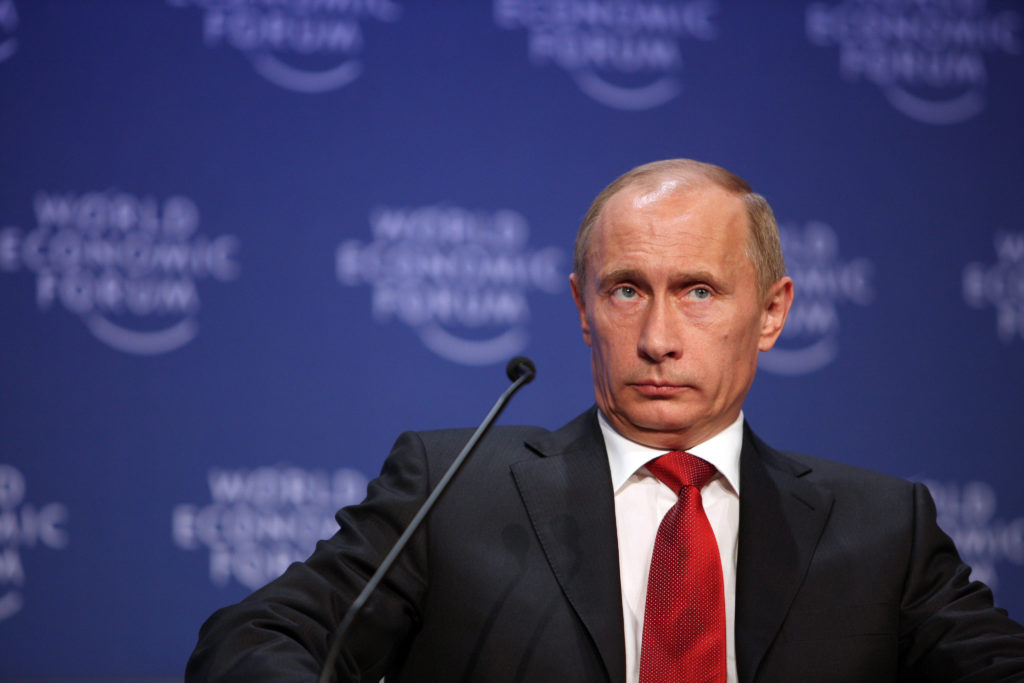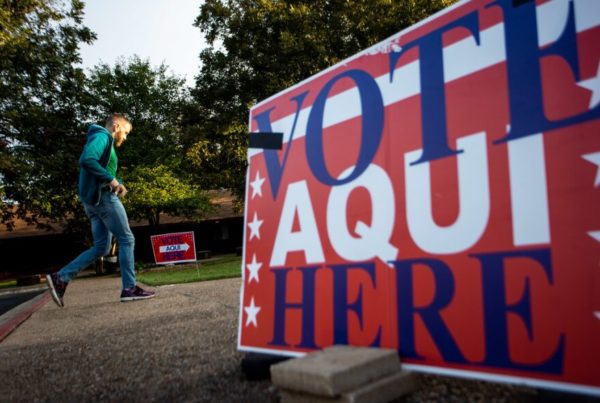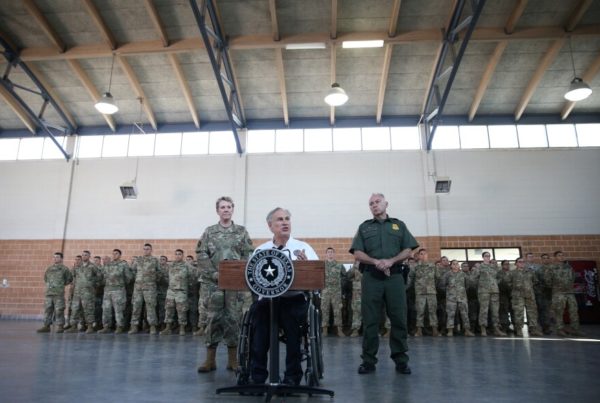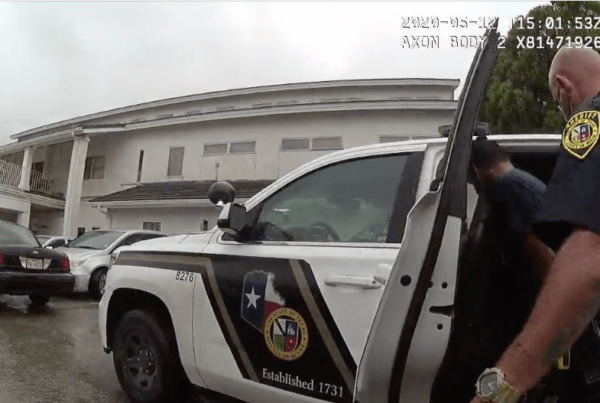The Biden administration warns a Russian military invasion of Ukraine could be imminent. U.S. intelligence indicates a large military buildup around Ukraine, including armed naval vessels, tanks and airborne units, according to reporting in The New York Times.
William Inboden, executive director of the Clements Center for National Security at the University of Texas at Austin, tells Texas Standard that what comes next could be a conventional invasion, or the installation of a Russian “puppet” government. And, he argues, the Biden administration appears to have shifted its focus to bordering countries from Russian expansion westward.
Listen to the interview with Inboden in the audio player above or read the transcript below to learn more about how Ukraine’s president still remains optimistic that Russia and Ukraine can reach a diplomatic solution, but that Inboden argues he may soon need to shift to a “wartime footing.”
This interview has been edited lightly for clarity.
Texas Standard: What more intelligence have you been hearing beyond a greater military buildup around Ukraine that might indicate an imminent invasion? I know that the United States hasn’t wanted to show all of its cards, but when it gets as specific as claims that Russia plans to invade on Wednesday, that does sound very alarming.
William Inboden: Indeed, it does. And again, we don’t know for sure what will happen, I need to put that caveat up there right now. But all of the signs right now are very negative, indicating a very likely invasion of some force, between the Russian military’s troop deployments now surrounding Ukraine on three sides, including to its south by sea; a number of the publicly disclosed intercepts we’re getting about Putin’s orders to his commanders to prepare for the attack; the fact that the diplomatic efforts with the Russians have availed not at all.
I mean, if the Russians had shown any interest in an off-ramp or a diplomatic settlement, their Foreign Minister Sergei Lavrov would have been a lot more reasonable or accommodating in his negotiations with American and European officials. So all of the signs are quite worrisome at this point.
What accounts for the fact that Ukrainian leaders seem to be, at least by their public statements, less convinced that an invasion is imminent? The president of Ukraine saying this kind of talk about an imminent invasion isn’t helpful; it creates chaos and that’s the biggest enemy.
President Zelensky has been something of an outlier over the last few months. As the Ukrainian president, he’s obviously right there on the front lines, in the real crucible on this. There seems to be a couple of things going on. The main one is he knows that Ukraine’s economy is very fragile right now. And he also is very wary of doing anything that could provoke Putin any further, and so, likewise, doesn’t want to sow chaos and panic among his people. And so Zelensky seems to be operating with a different set of incentives in the near term of trying to maintain as much calm and economic stability in Ukraine as he can while he quietly makes overtures for is a diplomatic settlement.
But the problem is that all of Putin’s actions are indicating otherwise. And Zelensky may very quickly need to pivot to a wartime footing if the invasion actually does actually take place. But I think his behavior has been a bit of a puzzle.
What would such an invasion actually look like, and when would we know that this was happening versus, say, a drift of soldiers from the eastern portion of Ukraine westward?
It’s important to stress here that Russia’s malign activities and aggressive actions to Ukraine are already taking place. Russian intelligence operatives have already infiltrated the country; some have been in there for years as sleepers, essentially. Russian cyberattacks on Ukraine have been dramatically stepped up, as well as Russian information operations, false bomb threats, anything they can to sow chaos, even some Russian efforts to foment division among Ukraine’s political leadership.
And so, whether this is prelude to the actual launching of the conventional forces invasion, or maybe just an elaborate, elaborate bluff to get Ukraine to essentially surrender or capitulate or allow a Russian puppet government to be installed without the invasion, that still remains to be seen. But all of the signs are that an act of troop deployment, active, you troops rolling across the border and missile attacks, there are things seem quite likely pretty pretty soon. We sure hope that isn’t the case. It may even be that Putin himself hasn’t decided.
How does the United States and its allies prepare, given that the Biden administration now sees this as imminent?
This is a concern. Looking at the Biden administration’s actions, not just their rhetoric, but their actions, it’s pretty clear to me and a lot of other observers that the Biden administration has essentially already conceded Ukraine to Putin. Now, let me be clear: that doesn’t mean that they want Putin to invade or that they have no objections to it. But the Biden administration is not taking any meaningful steps to actually stop the invasion. Rather, they’re taking pretty assertive steps to prevent Putin from going any further beyond Ukraine. So that’s why we’re deploying more troops to NATO’s eastern front, including to Poland and some of the other states there.
But another important indicator is the Biden administration has not yet imposed any dramatic new sanctions on Putin. They keep threatening to, but the time to actually impose those if you wanted to stop the invasion would have been over the last several months – increase the pressure on Putin now so that he feels some sort of incentive to negotiate or some sort of reason, otherwise Putin hasn’t payed any sort of cost yet for this. And the Biden administration keeps saying, if you invade, then we will impose sanctions, then we will ostracize you, so on and so forth. I think they’ve gotten that backwards.
But like I said, they can’t say this publicly, but they seem to essentially have factored in or conceded Ukraine to Putin and are now thinking about the “What next?” questions. The problem, of course, is it’s a lot harder to reverse an invasion that’s already occurred than it is to stop one before it occurs.













